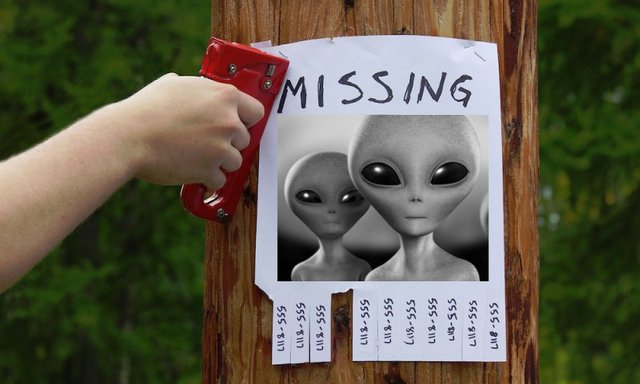What Happened to Aliens? The Issue of Sustainability and How It Explains the Absence of Extraterrestrials.
Humanity seeks for extraterrestrial life for as long as we first allowed the very idea about it to slip through and occupy our minds. More than a half of century ago, Enrico Fermi, a very famous physicist, studied a very interesting problem (known today as the Fermi paradox). He contemplated about the time needed for a technologically advanced civilization to colonize the whole galaxy or at least explore it. Fermi argued that if a civilization would spread with a speed 100 times slower than that of light, it would reach the end of the galaxy fairly quickly. To be exact, he believed that it would take only 10 million Earth years to cover the entire galaxy. Now, we estimate that our galaxy exists for more than 10 billion years. Life on our planet exists for about 4 billion years. That is more than enough time for an advanced civilization to expand, find us, and show their presence. However, we still didn’t meet extraterrestrials.

Image Credit: Catherine dee Auvil
Various specialists tried to explain why humanity is alone or simply ignored by other civilizations. One of the explanations is that humanity is a great coincidence of a universal scale. Maybe, life occurs once or twice in the whole galaxy. Some believe in the power of self-destruction arguing that the vast majority of civilizations inevitably destroy themselves. There are people who think that other races have already found us and carefully observe and study us.
Recently, we decided to contemplate about Fermi’s paradox once again. With a more versatile approach and wider studying, we found another interesting explanation. First, let’s talk about humanity. We managed to grow our population from a couple of millions to over 7 billion in less than 10 thousand years. One of the problems that we are concerned with now is that we expand and multiply faster than our resources allow us to. The Earth is vast, but the amount of resources is limited. If we face this issue on a planetary scale, imagine the problems that an advanced civilization would face when expanding on a galactic scale. The sustainability is a problem that can drastically limit the possibilities and reach of a civilization that learned how to colonize other worlds.
If this idea is right, any advanced civilization that tries to colonize other worlds will never be able to colonize the entire galaxy. Big galactic empires will collapse under their own weight. Maybe, some civilizations tried to expand and then suffocated without enough resources to survive their own expansion. Who knows? If this is true, then we will never see any signs of other civilizations that may be gone by now and have been gone for millions of years. A lifecycle of such empire would be too short for us to notice. Dead planets with remnants of great civilizations will be missed by our scouting drones. The graveyard is harder to notice than a festive town.
Our whole galaxy may be quite lively, but other civilizations might have faced the problems of sustainability and decided to ensure their survival by rationally using available resources within their reach. However, if other civilizations were destroyed due to resource starvation, humanity must ensure to use energy and resources wisely to outlive those who failed to adapt.
Why on Earth (or the galaxy, I guess) would you think that as a society becomes more sophisticated, it would run out of resources? We're headed for abundance in everything, not shortage. Particularly, a space-faring society would not lack any resource.
The absence of evidence is not the evidence of absence!
Virtual Reality. Minimal actual resource is required. Unlimited virtual resources are perceived.
In other words...all the aliens are "playing' video games full time...living in 'second life'.